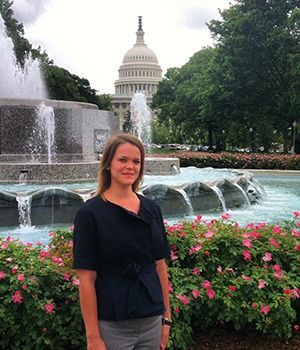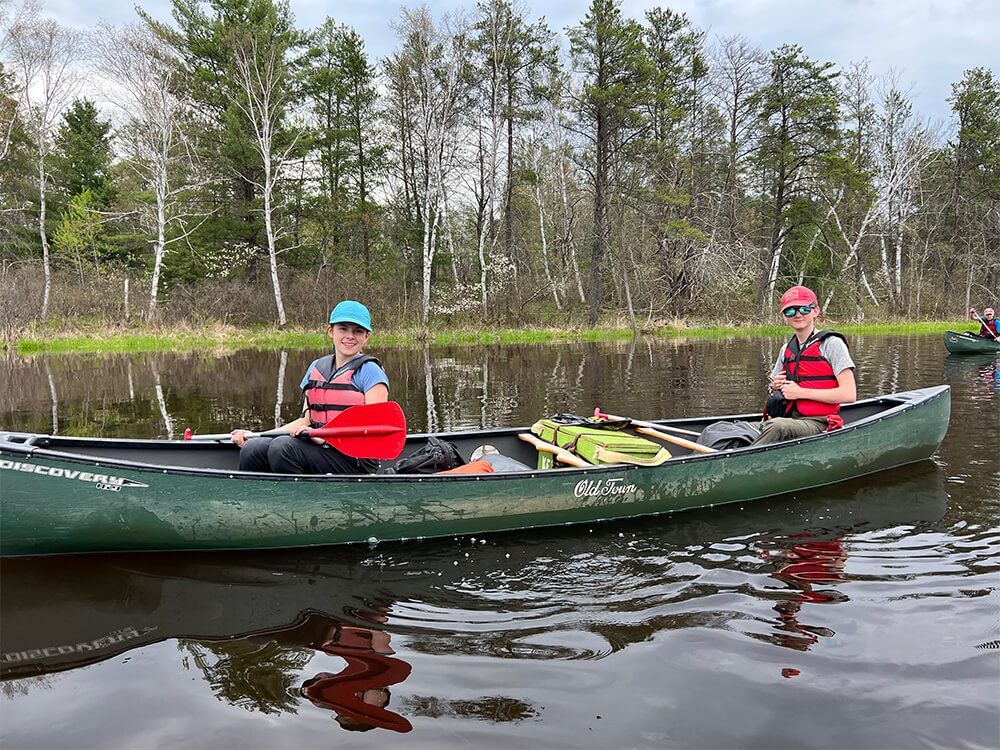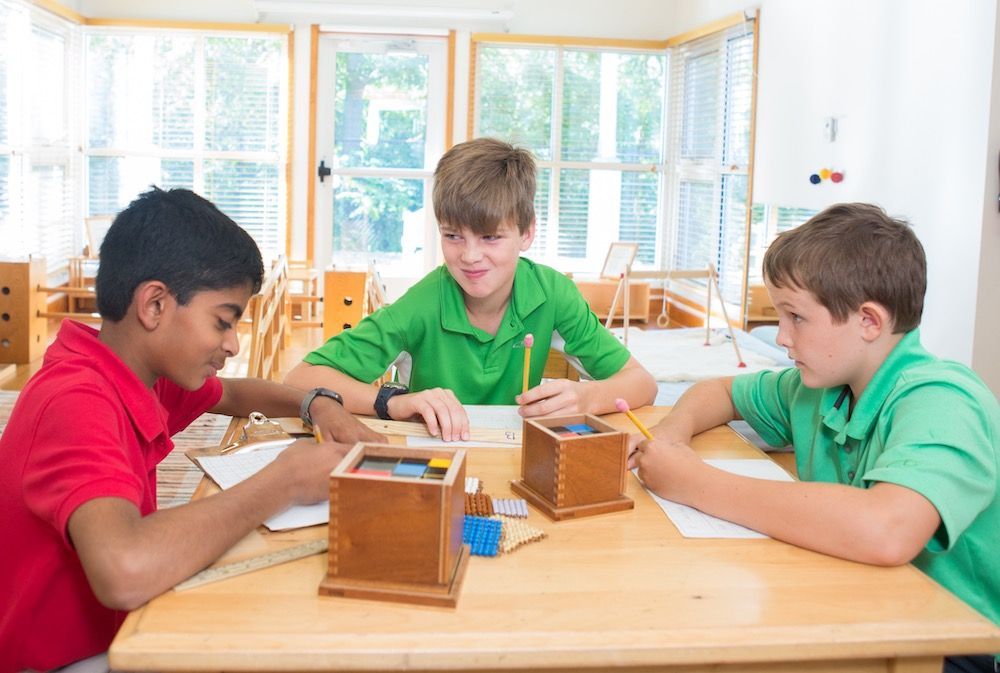
Parents often ask us, “What happens next? Where do our children go to high school, and what is that transition like? Which schools do they go to, and what kinds of careers do they choose? What are they like?” Parents want to know, in essence, “How is choosing Forest Bluff going to make a difference in my child’s life? And how can I know for sure?”
A few weeks ago we transformed the school building into a party venue for roughly 150 alumni and their parents who came back to visit, as we do every four or five years. Graduates who attended Forest Bluff in the ‘80s, ‘90s, and 2000s came back and joyfully reconnected. This event is always amazing for the Directors because we get to hear about what our alumni are doing in their careers and see how happy they are. On this particular occasion, we asked former students if they would mind taking a moment to talk to a videographer about any of their thoughts on Montessori education. Every single alumnus we asked responded enthusiastically; Montessori graduates seem to love telling people about their experiences, especially as they reach adulthood.
When our videographer—who knew nothing about Montessori—asked what we wanted him to ask the alumni, we said, “Just get them talking. Let them be themselves.” They had no trouble sharing! Over the Christmas vacation, I sifted through the footage and chose just a few minutes of clips to share with the audience at our evening presentation. These specific individuals went all the way through Forest Bluff, from 18 months old to age 14. They went to a variety of high schools: New Trier, Lake Forest Academy, Vernon Hills High School, and boarding schools. Some are working in their chosen careers, while others are in college, graduate school, and medical school.
When one graduate jokes that you learn all these traits in Montessori “from the Pink Tower,” I believe what he’s saying is that the Montessori materials and how they are presented and used have a central role in the approach. It is through the materials that your children learn how to transform their experience into knowledge. And this is what I think each of these graduates is getting at here. As I listened to these clips, I realized it is the process of turning experience into knowledge that Montessori children learn. They feel that they are teaching themselves, and they develop a confidence that they can teach themselves things. Montessori students understand that learning is not a passive experience. Rather, information is out in the world, in the materials on the shelves, in books; it is in your environment and you’ve got to find it, work with it, experience it, and then transform that experience into knowledge for yourself. This gives Montessori graduates a certain mindset for life.
I relate to the feeling some of you may have when you see graduates like this, and many of us think, “That’s amazing, but I just don’t think my child will be like that.” We worry that our own children are somehow the exceptions, that they could not possibly ever pull it all together. I think this fear must be inherent in parenting.
You may think these graduates had superior genes, or outside tutoring, or some other hidden advantage. But I was here, and I taught some of these very children, and I can tell you: One had a very difficult time learning sandpaper letters, another had trouble memorizing multiplication facts, another had a hard time with learning to read, and one wrote run-on sentences for weeks at a time. We had to work so hard together! But they don’t remember it that way. What they remember is that their struggles were a normal part of the learning process.
In our classrooms today, your children are going through struggles, too, just as these children did. We adults must keep this in the forefront of our minds: Struggling with things is a natural part of learning how to learn. We need to allow our children the space to work things through, to self-correct, and to work past their difficulties. When we can do this, our children will improve and do so with dignity intact. Your children will grow up to be successful, just like these graduates—I promise!

Dr. Montessori talked a lot about having faith in the child—and what she meant wasn’t so much a personal leap of faith in each individual, but that we can have faith in this process of learning that is happening inside every child. She recognized this phenomenon—this drive to succeed, to learn—and told us, in so many words, “It will go best if you can prepare the learning environment to meet the children’s developmental needs and then support this natural learning process unfolding before your eyes.”
In our recent Winter Coffee Discussion, I shared with parents the two things that make a big difference at home: Read to your children and surround them with quality literature, and involve them in the work that needs to be done around your house. This way, you show your children to be team players, to pitch in. This means carrying their own lunch basket in and out of the school building, helping to make meals, cleaning up when it’s needed, and so on. These are small ways you can foster your children’s growing independence and the mindset to embrace challenge. At these Coffee Discussions, our parents with teenagers who have graduated from Forest Bluff told their own stories. We discussed ways to address challenges at home and answered each other’s questions. I believe we all walked out into the cold weather feeling much encouraged in our parenting journeys!


